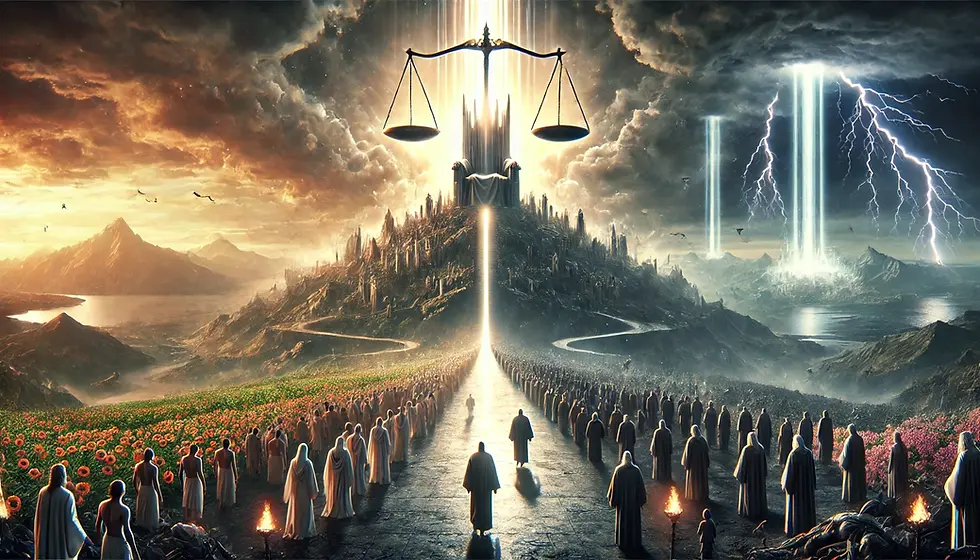The Unchanging Nature of God
- Edward D. Andrews

- Jan 2, 2024
- 2 min read
We delve into the concept of God's immutability, which refers to His unchanging nature. This attribute is fundamental in understanding the consistency and reliability of God as depicted in Christian theology.
Defining God's Immutability
God's immutability means that He is constant and unchanging in His nature, character, and will:
Consistent Nature: Unlike the created order which is subject to change, God remains the same throughout eternity. His essence, attributes, and purposes do not change over time.
Scriptural Affirmation: The Bible affirms God's unchanging nature in various passages. For instance, Malachi 3:6 states, "For I am the LORD, I do not change," and James 1:17 describes God as the Father of lights, with whom there is no variation or shadow of change.
Implications of God’s Immutability
Understanding that God is immutable has profound theological implications:
Reliability of God's Promises: God’s unchanging nature assures us that His promises and covenants remain steadfast and trustworthy. What He has promised, He will fulfill.
Consistent Moral Standard: God’s unchanging character provides a consistent moral standard. His moral laws and principles, as revealed in Scripture, remain relevant and authoritative.
Immutability and God’s Relationship with Humanity
God’s unchangeability shapes our understanding of His relationship with us:
Faithful in His Dealings: God’s immutability means that He is faithful and consistent in His dealings with humanity. His love, mercy, and justice are constant.
Response to a Changing World: While God Himself does not change, He actively engages with a changing world. His interactions with humanity in history demonstrate His dynamic involvement in the unfolding of His redemptive plan.
Theological Reflections on God’s Immutability
Reflecting on God’s immutability leads to deeper theological insights:
Comfort in God’s Constancy: In a world of change and uncertainty, God’s immutability provides comfort and assurance. Believers can find solace in the fact that God’s character and His commitment to them remains constant.
Worship and Reverence: Recognizing God’s unchanging nature inspires worship and reverence. It calls believers to honor and revere God, who is eternally consistent in His holiness and sovereignty.
Conclusion: Embracing the Unchanging God
Embracing the immutability of God deepens our trust and confidence in Him. It assures us of His steadfast love, unchanging promises, and reliable guidance. In a world that is ever-changing, the immutable nature of God stands as a cornerstone of our faith, inviting us to rest in His eternal constancy and unshakable kingdom.
About the Author
EDWARD D. ANDREWS (AS in Criminal Justice, BS in Religion, MA in Biblical Studies, and MDiv in Theology) is CEO and President of Christian Publishing House. He has authored over 220+ books. In addition, Andrews is the Chief Translator of the Updated American Standard Version (UASV).




Comments